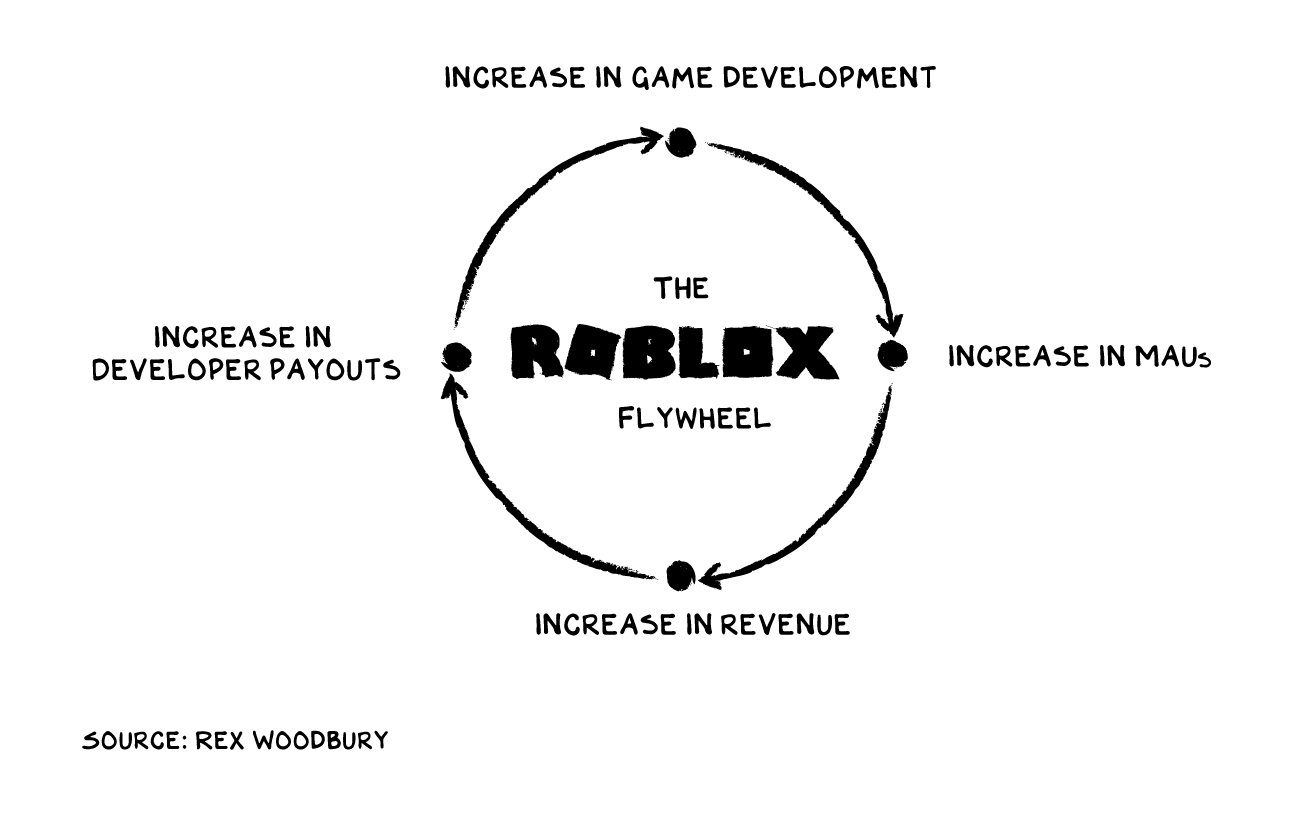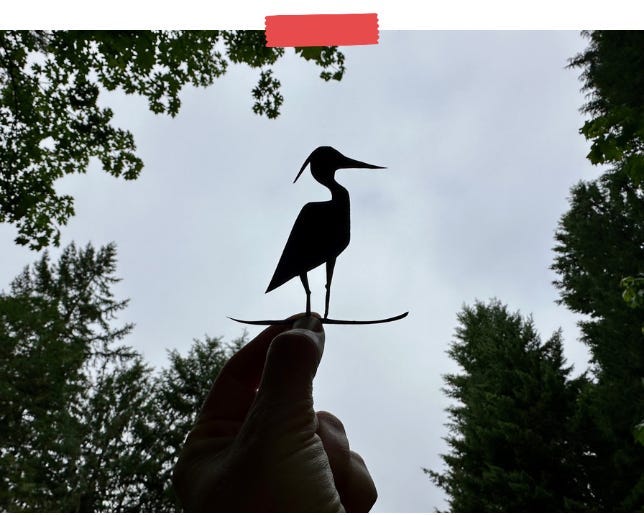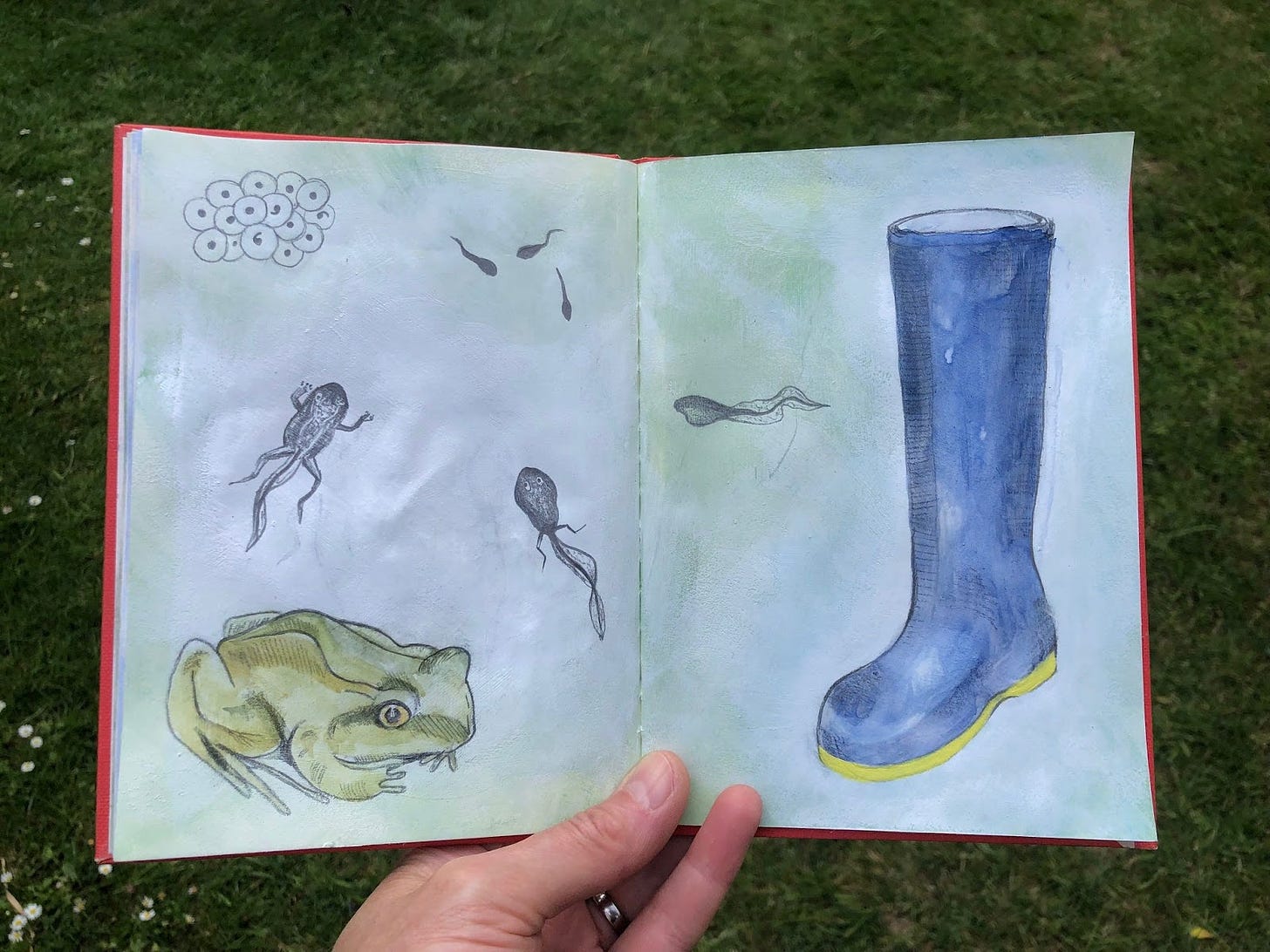Substack Reads: The global empire of Roblox, customized batons, and Fungie the missing Dingle dolphin
Hello and welcome to another edition of Substack Reads! This week, Rex Woodbury and Jaryd Hermann take readers on a deep dive into the rising startup Roblox, author Katherine May hails the passing of midsummer, Emily McDowell shares part one of her raw account of “going viral,” and Substack writers remember Cormac McCarthy. Enjoy!
BUSINESS
The global empire of Roblox
How the social gaming company went from virtual playground to having a market cap of $24B, powered entirely by community and user-generated content. But where did it come from, and why is it growing so fast?
—
and in andPart of what enables these cultural experiences is that this generation’s “games” resemble virtual worlds more than they resemble Tetris or Mario Kart. Today’s most compelling gaming companies are platforms. Companies like Roblox don’t create any games—players create their own games and earn a share of revenue. This significantly de-risks an investment: there are over 40 million games on Roblox, with the top 10 games representing only ~30-40% of revenue.
Virtual worlds are underpinned by robust digital economies. Roblox developers earned over $600M in 2022, a payout that’s grown at a 77% compound annual growth rate since 2019. Epic Games, the maker of Fortnite, grossed nearly $50M just from sales of NFL skins.
Gaming has gone from a niche hobby to a massive global industry across all demographics and well beyond outdated, narrow stereotypes of “gamers.”
CRAFT
Keeping the beat: custom-made conducting batons
A good conductor can lead an orchestra with almost anything—even a chopstick. Why, then, in this age of cheap manufacturing, are handmade, customized batons still in demand?
—Jeff Greenwald of
inThe conducting baton as we know it today—a delicate white spindle, counterbalanced with a handle of cork or wood—originated in the mid-1960s, an inspiration of Minnesota conductor Charles Olson. “At the time,” states the Custom Batons website, “conductors everywhere were accustomed to using any old stick as a baton.”
Conducting itself dates back to at least 2700 B.C. Ancient Sumerian artworks show rows of singers flanked by “time beaters” who may have clapped to keep the chorus synchronized. It was not until the early 19th century that orchestras and their scores became complicated enough to require a standing leader, herding the many instrumentalists into a cohesive whole.
Today, the international music community requires thousands of batons every year. They’re sold to high schools, universities, symphonies, bandleaders, and music directors from Alaska to Zanzibar.
WELLNESS
The sun sets on midsummer
Author Katherine May welcomes coolness and considers endurance and fleeting joy on the passing of the solstice
—
inI lay down, let the waves of strange sound wash over me, and dreamed of the sea. In my mind’s eye, it was big, blousy, turbulent. My body would not lie still. It felt as though something was writhing underneath my skin, something that could not quite reach this old friend that ought to comfort me, but which felt so unreachable. I placed my palms on my chest and felt my heartbeat, a caged animal. My hands burned with its fury. But then I remembered: electricity. It has always been more than a metaphor for me, a very real sensation of something that needs to be channelled and discharged, something that cauterises otherwise. I always did need to be earthed. I pressed my palms onto the floor and felt its full force, a wild, coruscating outpouring through my fingertips. In my mind’s eye, huge, ominous storm clouds rained lightning over the sea.
That evening, we gathered on the beach to watch the midsummer sunset. The air had an underlying coolness, as if a real storm had passed over, rather than just a personal one. At the end of my sound journey, I had thought of bringing flowers to the sea to make a rapprochement at the moment the sun touched the waters. Midsummer is, after all, the feast of St John the Baptist, a day to visit holy wells. If the sea is not my vast, unfathomable holy well, then I don’t know what it is. I imagined myself floating petals out onto the waters as a tribute, hoping that my adoration would be returned.
TRAVEL
Find Fungie: Dingle’s missing dolphin
Travel writer Tom Fish encounters a fishy tale in Dingle, Ireland: Fungie the town dolphin has gone missing, and nobody knows how
—
inThere are the advertisements for Fungie boat tours, sea safaris, an aquarium; there’s even a dolphin shop (which does not sell dolphins, alas, alas).
Since 1983 Fungie has hung around in the sea near the harbour, gladly playing the town hero to those who travel to see him. Boats go out into the bay and there he is, larking about. He’s big business.
It’s fair to conclude, then, that Dingle is, and I’m fairly certain it’s alone in this, a dolphin town. Which is a problem, because Fungie’s gone.
MEMOIR
“Find what you love, and let it kill you”
When Emily McDowell’s greeting-card business went viral in 2015, the scale of velocity nearly killed her. She shares part one of her story in her new Substack
—
inThe morning of May 23, 2015, I was sitting in the back of a black town car drinking a quad-shot iced espresso, which I had already spilled on my white shirt, twice. The car inched and honked its way across Manhattan from my shitty hotel—a place with tiny, windowless rooms and stainless-steel bunk beds, like some sort of prison that costs three hundred and fifty dollars a night—to ABC, where tomorrow I would be a guest on Good Morning America.
My hands shook from too much caffeine, too little sleep, having forgotten to eat food, and the general state of being myself at that point in time. I was keenly aware that I was supposed to be happy, but I was brittle and exhausted.
PHILOSOPHY
Is ancient technology ever really lost?
There are a few ways technology could be lost: the inventor dying, secrets being kept, mysterious processes being forgotten. But do any of these actually happen? And what are the known examples?
—
inWhy is the Pantheon still standing after nearly 2,000 years, while most of our concrete infrastructure crumbles after a few decades? Is it because we have lost the secrets of ancient Roman technology?
Not really. We know how to make durable concrete; it’s just more expensive than the alternatives that last 30-40 years. Besides, we have figured out why Roman concrete was so great. In many cases it is because of the addition of pozzolana, a material that comes from volcanic ash and was common in the region of Naples, near the Vesuvius volcano. Pozzolana can help concrete auto-repair its cracks, which is pretty cool, but not supernatural either. We sometimes use pozzolana in cement today, and there’s extensive research that goes into concrete chemistry, considering concrete’s huge economic importance.
It seems plausible that Roman concrete was, in a sense, lost as the empire crumbled and collapsed. It might have been difficult to procure pozzolana ash when the trade routes were less safe in the early Middle Ages, which would make durable concrete rarer. But then again, there’s plenty of use of mortar in the medieval period, notably in cathedrals, so it’s not like the knowledge of making “liquid stone” became unheard of.
SPORTS
England needs to stop talking
After the English cricket team’s defeat in the first test match of the Ashes, Philip Collins looks at what they should be thinking about, and stop talking about, as they endure the second round at Lord’s
—
inThe team has evident problems. The top three are unproven at this level. Stokes is palpably unfit and can’t bowl his due share. The incapacity of the captain exacerbates the problem caused by the absence of Jack Leach. Moeen Ali cannot hold the scoring in the first innings and his attempts to bowl too much split his finger. Josh Tongue will now have to bowl some of his overs. Ollie Pope is in the wrong place in the order and he is being encouraged to display his worst aspect as a batsman—his frenetic activity—at the expense of his best—his stately elegance. Jonny Bairstow isn’t a terrible wicketkeeper, but there is a lot resting on his selection.
Fishing for frogspawn
In an illustrated letter to nature, Rebecca Holden brings the childhood treasures of finding frogspawn back to life
—
in , recommended byBefore we had a garden pond, every spring we would collect – with permission – a small mass of frogspawn from someone who did have a pond to pop into a little aquarium in the kitchen. Brand-new frogspawn is extraordinarily dense and compact: the eggs are tiny. It is only when the spawn has spent some time in water that it hydrates, swells and grows into that familiar bulging mass, those little black dots so beautifully centred in their jelly globes. From that point on, we’d watch as the tiny full stops punctuating the spawn in our aquarium would elongate into little commas, and I’d be fascinated once the black lines of embryonic tadpoles would start to move, snapping themselves back and forth from what I imagined to be a central hinge as they limbered up for life in the water.
As the tiny tadpoles hatched they would stick together in a writhing black inky mass on top of the floating pile of disintegrating jelly.
LITERATURE
In memory of Cormac McCarthy
Substack writers have been paying homage to the American novelist. Janisse Ray looks back on his influential style
—
inPeople say that his writing was different in that he didnt use punctuation. Thats not correct. He used punctuation. Every one of his sentences ends with a period or a question mark. He quit certain punctuation marks, namely quotation marks and apostrophes. He avoided commas and parentheses. It made no sense, actually. He would use an accent mark but not an apostrophe.
To avoid hyphens hed fit two words together. Im not talking about compound words, like firepower or nighthawk, already accepted by copyeditors. Im talking about hundreds of new words he added to the English language by refusing to use a hyphen. Why?
I dont know how the editors let him get away with this. They catch me every time. Autocorrect wont let you get away with it either. Nobody could get away with this except Cormac.
Here are some compound words Ive gathered from his books.
cutglass
boilersmoke
blanketcoats
ardenthearted
highschool
gaptoothed
shine boy
hairpapers
Recently launched
What’s happening in Notes
solicits advice on when to kill a piece of writing you don’t feel good about:Inspired by the writers featured in Substack Reads? Writing on your own Substack is just a few clicks away:
Substack Reads is a weekly roundup of writing, ideas, art, and audio from the world of Substack. Posts are recommended by staff and readers, and curated and edited from Substack’s U.K. outpost by Hannah Ray.
Got a Substack post to recommend? Tell us about it in the comments.































Roblox story is interesting!
Would love to share my new guide to Japanese katsu!
https://hiddenjapan.substack.com/p/the-yoshoku-food-trilogy-the-original
Is it just me or these are some very boring breads ? I wonder who selects them at Substack. I am sure that there are far more interesting writers on Substack.
If you found these boring, then perhaps you will enjoy this one and change your life and make millions in passive income the rest of your life
https://open.substack.com/pub/raisini/p/how-i-built-a-billion-dollar-passive?r=aegif&utm_medium=ios&utm_campaign=post